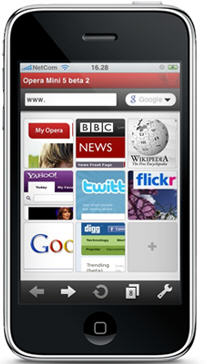The mobile browser dance gets complicated

Mozilla shelves plans to develop a mobile browser for Windows Mobile and Windows Phone 7. Opera broadcasts every step in its quest to have its browser approved for Apple's iPhone. And generally speaking you get the browser that is given to you with your smartphone.
I
It's all just a wee bit screwy. Mozilla's Stuart Parmenter said that the group will focus its mobile browsing efforts on Android and Maemo. Regarding Windows Phone 7, Parmenter said:
While we think Windows Phone 7 looks interesting and has the potential to do well in the market, Microsoft has unfortunately decided to close off development to native applications. Because of this, we won’t be able to provide Firefox for Windows Phone 7 at this time. Given that Microsoft is staking their future in mobile on Windows Mobile 7 (not 6.5) and because we don’t know if or when Microsoft will release a native development kit, we are putting our Windows Mobile development on hold.
While I hope that we do see Microsoft provide us with a way to build Firefox for Windows Phone 7, we will continue to focus on the things that we can control: building a great consumer product on both Android and Maemo.
The good news here is that it sounds like Mozilla will revive its Windows platform development at some point once the SDK lines up. But what the two largest smartphone platforms---BlackBerry and iPhone?
Simply put, the mobile browsing thing is just too damn complicated. Everyone has an SDK. Everyone has their own operating system. Everyone wants control to varying degrees. It's just messy for cross platform outlets like Opera and Mozilla to navigate. Mozilla Links Percy Cabello notes the conundrum:
Google's decision to use proprietary H264 on YouTube, seconded by Internet Explorer 9 last week, signals one of the major threats to the open web for the next decade now that we have a healthy pretty much standards based race going on: open formats.
The second is closed important mobile platforms like Apple and Microsoft's.
Breaking into these platforms isn't easy. That's why Opera is standing on rooftops telling people that it has submitted its mobile browser to Apple's App Store. Why? Opera wants to put some pressure on Apple to approve it. The ball is now in Apple's court.
It's a shame that Opera has to use the media just to rally some support for iPhone approval. Frankly, this mobile dance should be a lot easier.